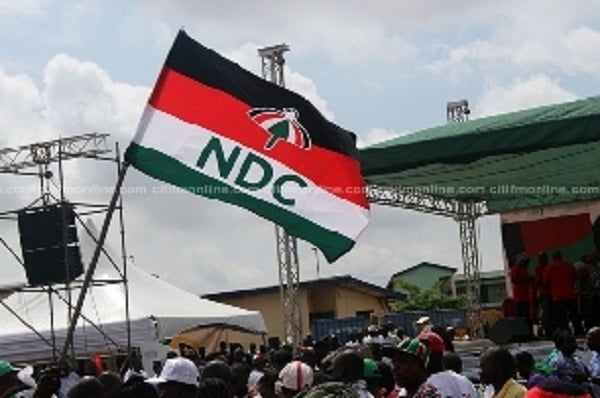The National Democratic Congress (NDC) Disability Desk has expressed strong condemnation of a violent attack against its deaf supporters, specifically targeting a member named Samson Adjei, affectionately known as Kofi Kaah. The incident occurred in Asawinso A, located within the Bibiani Municipal area of the Western North Region. Allegedly perpetrated by individuals associated with the New Patriotic Party (NPP), the attack has garnered widespread attention across Ghana, raising serious concerns about the rising trend of political violence in the country. This shocking occurrence was not only captured on camera but also disseminated via XYZ TV, pointing to the harsh realities faced by political supporters who hold differing affiliations.
The assault against Adjei unfolded when he was riding his motorbike past an NPP campaign float. Reports indicate that he faced harassment from NPP supporters, who forcibly seized plantains he was transporting. When Adjei, who is deaf and unable to hear the aggressive confrontation, voiced his objection, he was reportedly pushed to the ground and subjected to a brutal mob attack. The attackers employed various forms of violence, including punches, kicks, and strikes with a cutlass. The serious nature of the assault left Adjei incapacitated, requiring assistance to regain consciousness before being transported to a medical facility for treatment. The physical injuries he sustained, particularly severe swelling and sensitivity to light affecting his vision, underscore the severity of the attack, which appears to have been politically motivated given his allegiance to the NDC.
In a formal statement released by Frederick Assor, the National Coordinator of the NDC Disability Desk, the party condemned the attack as a significant violation of Adjei’s rights and dignity as a person with a disability. This incident was labeled not only as a hate crime but also as a glaring affront to the principles of democracy in Ghana, which uphold the right of every citizen to participate in political processes free from violence or intimidation. The NDC Disability Desk’s outcry elucidates their grave concerns over escalating political intolerance in Ghana, emphasizing that such violent acts undermine the foundations of democratic governance and civil liberties.
The accountability for political violence has been highlighted as a pressing issue by the NDC Disability Desk, which called for a collective rejection of hostility and an endorsement of civil dialogue among all Ghanaians, irrespective of differing political ideologies. Their statement underscores a troubling trend of impunity among attackers, who allegedly boast of evading repercussions for their actions, thus fostering a culture of fear and lawlessness. The mentality exhibited by these aggressors not only threatens individual safety but also poses a significant threat to the wider social fabric of Ghanaian society.
In light of these events, the NDC Disability Desk urged law enforcement agencies in the Western North Region to prioritize the investigation into this attack and ensure that those responsible are brought to justice. The necessity for equitable treatment under the law is paramount, and the desk called upon additional oversight from the Commission on Human Rights and Administrative Justice (CHRAJ) and the Peace Council. These entities must act to guarantee that the incident is handled fairly and transparently, reflecting a commitment to uphold human rights and protect marginalized individuals within political contexts.
The NDC Disability Desk reaffirmed its unwavering commitment to advocate for the rights and voices of individuals with disabilities in Ghana’s political domain, emphasizing the importance of visibility and representation for this often-overlooked demographic. By bringing attention to such alarming acts of political violence, the NDC Disability Desk aims to foster an environment where all citizens, regardless of their physical abilities or political affiliations, can engage in the democratic process without fear of retribution or harm. This overarching commitment to justice and the protection of civil rights across all sectors of society remains crucial for reinforcing democratic principles and cultivating an inclusive political landscape in Ghana.














